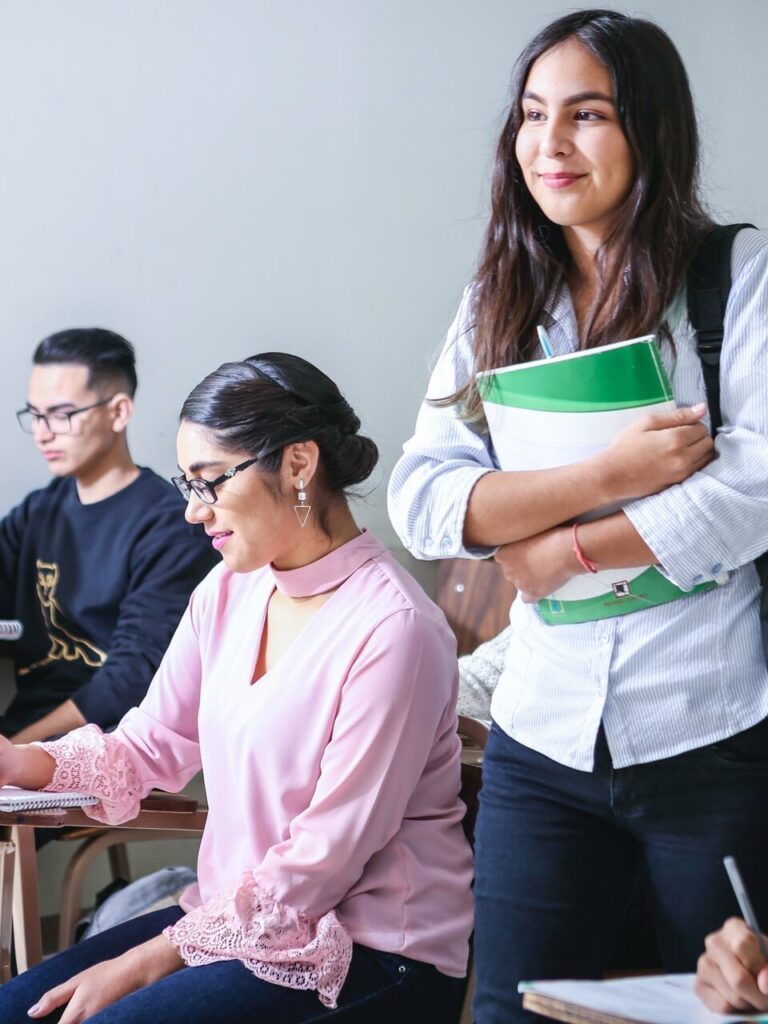
Community Education, Programming, and Training
The Medicine Hat Women’s Shelter Society provides free community education and awareness programming on issues related to family violence.
We often present to schools, businesses, hospitals, religious, organizations and agencies throughout the community and surrounding region. We’re also available for information displays at community events, volunteer/job fairs, or other awareness opportunities.
Are you a teacher or in a professional field?
We’re always excited to adapt our programming to complement whatever your field is, such as: healthcare, criminal justice, frontline social work, addictions, mental health, sociology, education, etc.
Presentations & Training
We’re available for brief presentations on the work MHWSS does in our community, and how everyone can be a part of making our community a safer place!
1 to 2 Hours
An in-depth presentation about the dynamics of family violence and abuse, best practices for supporting someone experiencing abuse, and an overview of MHWSS supports and services.
2 hours
Run by our Child Support Program to educate those working with children and youth on best practices for supporting children in their care who may be experiencing family violence.
1 hour minimum
Everyone deserves a safe work environment. This training provides an overview of what family violence is, how it impacts the workplace (including Occupational Health & Safety), and how workplaces can respond in a way that increases safety for everyone.
A program for local hairdressers, and other beauty and wellness professionals to build their skills in recognizing signs of family violence, responding in a safe and supportive way, and referring clients to professional supports in the community.
1.5 hours
Family Violence is considered a form of gender-based violence due to its disproportionate impact on women. This presentation is an introduction to what gender-based violence is, discusses toxic masculinity, damaging stereotypes, victim-blaming, and rape culture – and how we can start changing the conversation.
Children & Youth Programming
K-6 and youth groups in the same age range
This program focuses on all the positive things hands can do, and safe ways to express anger and feelings. A minimum of 30 minutes per program is needed. Students will decorate a banner, or t-shirts if the time booked is 45+ minutes. This program cannot be done as a lunch and learn.
K-6 and youth groups in the same age range
This presentation focuses on the topic of verbal abuse, how it is not okay to be verbally abusive towards others, and the impact of hurtful and helpful words. It includes an age-appropriate activity relating to the discussion of verbal abuse, and then as a group we explore the premise of emotional safety planning.
1 hour minimum
Our healthy relationship programming focuses on topics like how our attitudes and values impact relationships; Different types of abusive and controlling behaviour; Common myths about abuse; and what youth can do if they need help, or know someone who needs help. Depending on available time, topics like boundaries, consent, communication, online safety, and stalking are also discussed. While mainly for youth who are in middle and high school, this programming can be adapted for younger age groups.
Full classroom period
A follow-up to the Healthy Relationships presentation. A look at how dating and dating violence occurs with technology, legal and ethical obligations, how students can minimize risks, and how to handle difficult situations.
We’re constantly building up a library of hands-on activities for youth to spur discussion on healthy relationships/dating violence – and hopefully keep this discussion going!
One size doesn’t fit all when working with children and youth. We’re able to adapt programming to whatever your needs may be, such as a time limit, accessibility, and/or focusing on specific topics. We can also provide ideas and guidance for adults who work with youth on approaching topics of healthy relationships. Examples include: Lunch-and-learns, ESL-focused programming, info booths, virtual presentations, and specific topics such as online safety, safety planning, gender-based violence.
Host a Community Education Program

